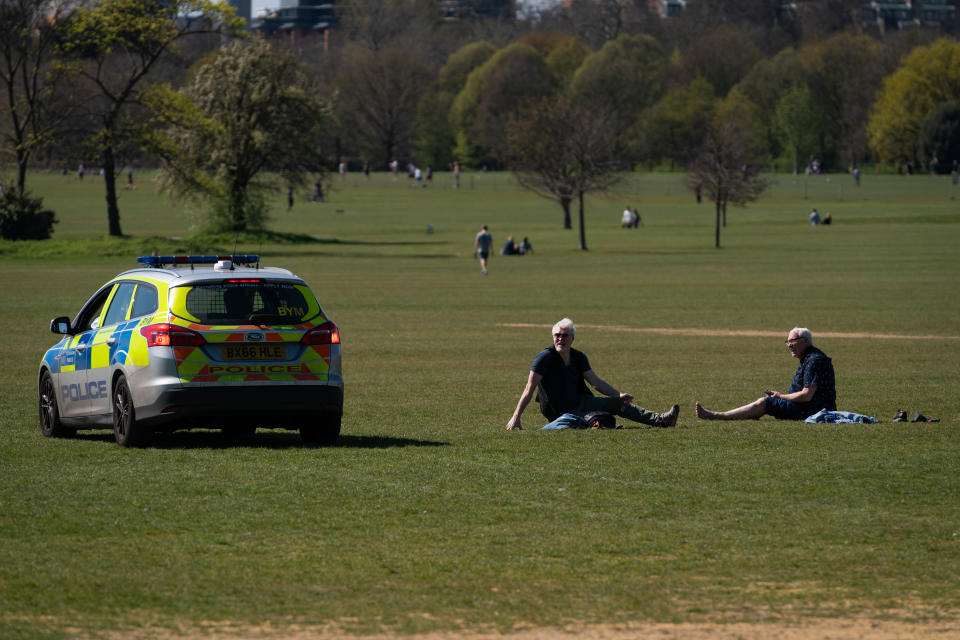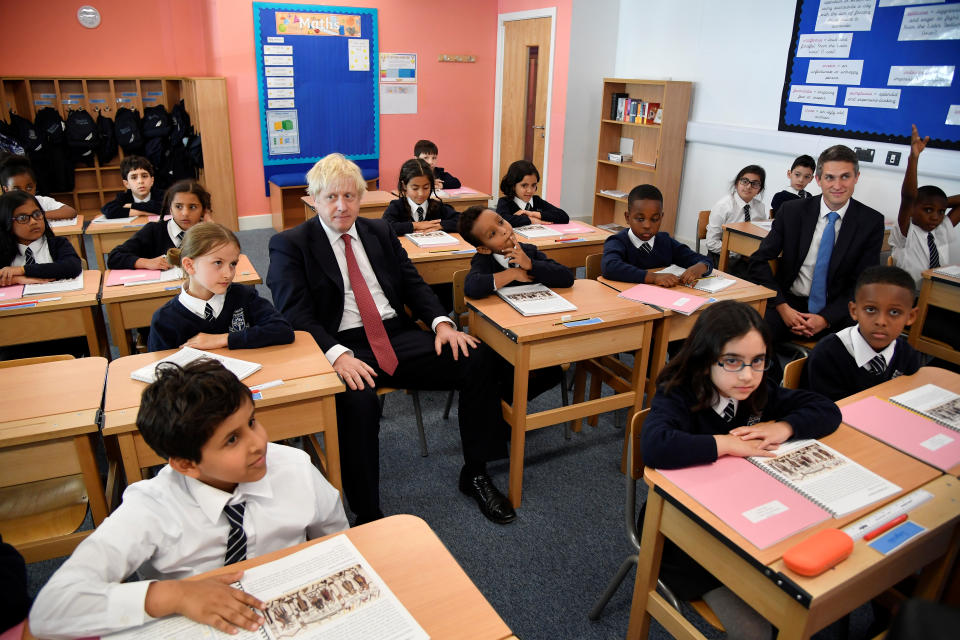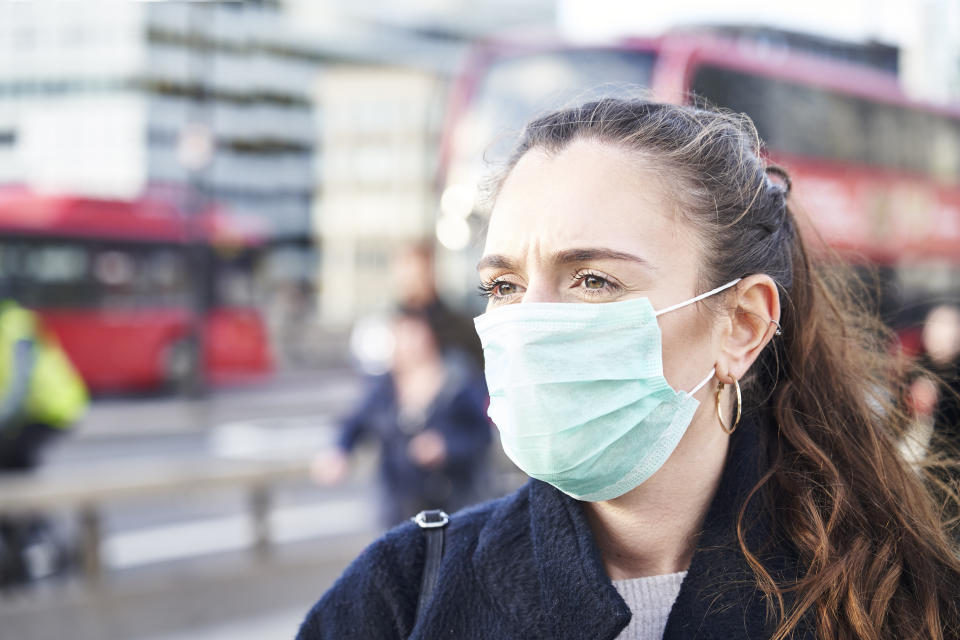Six ways the UK's coronavirus lockdown could be eased under Boris Johnson's recovery plan

Boris Johnson is expected to outline plans to ease the coronavirus lockdown on Sunday.
The prime minister will reveal the government’s strategy to reopen businesses and kickstart the economy following the pandemic, which has seen the country subject to stringent movement restrictions since 23 March.
In a public address on Sunday, the PM will outline plans to ensure the British public feel safe re-entering society when advised it is safe to do so.
These are likely to include a gradual reopening of schools and allowing people to travel to beauty spots for exercise, according to a draft document leaked to the BBC and the Financial Times.
Here are six measures the government is said to be considering.
Freedom to travel for exercise

People will be allowed to exercise outside several times each day and drive to the countryside and other outdoor spaces for walks and picnics, the Mail on Sunday has reported.
However, they will only be allowed to do so with members of their household and must stay at least two metres away from other groups.
The change, which will end the sight of police officers moving on solitary sunbathers in parks, follows new scientific advice to ministers that the risk of transmitting the disease is substantially lower outside than indoors.
Year six pupils to be first back in schools
Government scientific advisers are examining the impact of letting children in their final year of primary school return to classrooms from June, the Guardian has said.
The PM is expected to announce that children in year 6 will be the first cohort allowed back into schools since he announced their closure on 18 March, to be closely followed by other primary school years and years 10 and 12 in secondary schools.
The government’s Sage scientific advisory group is said to be focusing on allowing back older primary school children initially, with the year 6 age group deemed a priority because of their need to transition to secondary school in September.

Latest coronavirus news, updates and advice
Live: Follow all the latest updates from the UK and around the world
Fact-checker: The number of COVID-19 cases in your local area
6 charts and maps that explain how coronavirus is spreading
Return to work with distancing restrictions
Office workers who can work from home are expected to be asked to continue doing so, but other ideas to help kickstart the country's economy include staggered start times in offices and factories and delayed lunch hours to limit the likelihood of overcrowding among workers in town centres.
Transport secretary Grant Shapps told the BBC that staggered hours would help to prevent crowded commutes. He said more buses and trains would run but that he also hoped to encourage cycling and walking.
Cabinet Office minister Michael Gove said a "staged" easing would mean measures could be reintroduced to tackle "localised" outbreaks.
One source with knowledge of the plans told The Telegraph the plans amounted to "the death of the rush hour".
Companies would be encouraged to set up temperature checks and testing facilities for COVID-19, with the instructions to send anyone who tests positive home immediately.
New ideas for public transport
With people beginning to return to work the chances of a “second peak” could rise, so ministers want to introduce measures to curb infection being spread on public transport.
Shapps told Sky's Sophy Ridge on Sunday that one-way systems could be introduced at train stations to help people use public transport again after lockdown measures are lifted.
Hand sanitiser on trains and two-metre markers on platforms are also being considered.
Shapps said: "I am very concerned about people being able to wash their hands, that’s still by far the most important advice, above anything else, even above face masks and the rest of it. The basic hygiene, the hand washing.
"We can help with that by trying to have hand sanitiser, one-way systems, spacing on platforms and bus stops and that sort of thing, clearly marked out."

Face masks
People could be advised to wear face masks to encourage them to work after the coronavirus crisis, Johnson suggested on Thursday.
In an apparently off-the-cuff remark, he suggested that wearing face coverings for returning staff to workplaces would give them "confidence" that they do not risk catching coronavirus.
Officials had insisted earlier that there would be no announcement on face coverings, so it remains to be seen if face masks will be mentioned in his formal address.
However, responding to a question from a journalist at the daily Downing Street press conference, the PM said: "What I think Sage is saying – and what I certainly agree with – is that, as part of coming out of the lockdown, I do think that face coverings will be useful, both for epidemiological reasons, but also for giving people confidence that they can go back to work.
“You will be hearing more about that kind of thing next week."
London mayor Sadiq Khan said: "I am pleased that the prime minister has said that non-medical face coverings will play an important role as we eventually look to lift lockdown restrictions.”
‘Social bubbles’
Scotland’s first minister Nicola Sturgeon has raised the idea of “social bubbles” – allowing people to meet a certain number of friends or family members so long as they only socialise within that one group.
The idea would be to allow two or three households to be able to join forces, up to a maximum of around 10 individuals. This could help people share childcare duties and improve mental wellbeing.
Mass gatherings are expected to be the last thing allowed to restart. “Social bubble” meetings could be the only options for socialising until 2021 after scientists said weddings, birthdays and churches are the worst coronavirus 'super-spreader events'.
Delay until the end of May...
On Radio 4’s Westminster Hour on Sunday night, The Sun’s political editor Tom Newton Dunn told listeners he had heard that 26 May was a likely date for Britain to start lifting lockdown measures.
He said: “I think lockdown will be extended [this Thursday], perhaps with a few minor tweaks in terms of how much time you get to spend outdoors maybe... I think we can expect lockdown to last until the end of May now.”
Newton Dunn said 26 May – the Tuesday after the second May bank holiday weekend – was the date he thinks “ministers are really aiming for” to end lockdown.
“They want to push it past the bank holiday because they don’t want people pouring on to the beaches again,” he said, “but then if the data is right, then we can start to see something [happening].”
He said the government would set out the plans on Sunday to give people time to come to terms with the relaxation of rules after a recent YouGov poll revealed that one-third of Britons don’t want movement restrictions lifted yet.
More information on possible measures to be taken are expected throughout the week.

 Yahoo News
Yahoo News 

